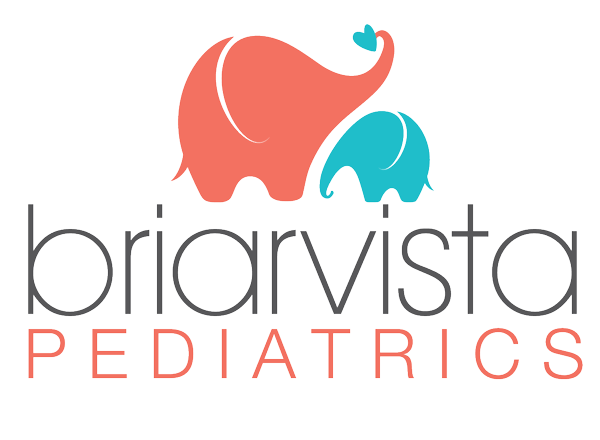‘Tis the Season…..for Coughs and Colds
It’s the middle of December. Your child has seemingly had a runny nose for weeks already. How do you know when to call the doctor? What can you do at home?
Winter is known as “cold & flu season” for a reason. Many illnesses DO have a seasonal aspect — influenza being the most common seasonal illness. Also as it gets colder outside, we spend more time indoors. And it is much easier to spread germs indoors, so we tend to catch more bugs this time of year.
The average child has 10-12 viruses per year. Group them heavier in the winter months, and yes, it will seem like your child has a runny nose non-stop for months. Typically, however, these are back-to-back viruses and not one long illness.
You know that viruses do not improve with antibiotics. But maybe it’s something worse. Or maybe a mild virus has progressed to a major illness. So when should you call the doctor?
- An infant younger than 60 days old with temperature of 100.4F or higher (measured rectally) should be seen, regardless of other symptoms.
- Any child with difficulty breathing — such as rapid breathing, wheezing, barking cough or a harsh noise when breathing in (stridor), using extra muscles to breathe, or if he cannot finish a sentence without taking a breath — should be seen right away.
- A child younger than 2 years of age who has ear pain bad enough to wake them at nighttime, or fever that persists beyond 48hrs in the setting of congestion/runny nose, should be checked for an ear infection.
- A child older than 2 years with ear pain and/or fever (over 101F) for more than 48hrs should be checked out as well.
- A child older than 2 years with a sore throat and NO other cold symptoms (runny nose/cough) should be checked for strep throat.
- If your child’s symptoms seemed to improve and then suddenly get worse again, they should be seen to rule out a secondary bacterial infection.
- A child who cannot drink enough fluids to have some urine output every 6 hours, minimum, needs to be seen.
Those guidelines are fine & dandy, but what about influenza itself? The one and only treatment option for the flu only works if started within 48hrs of onset of symptoms — the sooner the better. The medication is not without side effects though, so is often reserved for the sickest patients — those with underlying conditions such as asthma or heart disease, for example. If you suspect your child has influenza — especially after a known exposure and/or if they have underlying conditions — the sooner you bring them in to be tested the better. Not sure how to tell if it’s flu or just another virus? If the symptoms came out of nowhere it’s a pretty good indication of influenza. Was your child happily playing and eating in the morning, then suddenly has a fever and body aches after lunch? Potentially flu. Is your child too sick to play his favorite game or read her favorite book? Potentially flu. I sometimes say I can diagnose influenza by a “positive horizontal sign,” meaning this is the child who is laying down on the table with their coat over them when I walk into the room, NOT the kid sitting up and playing with toys. If you suspect flu, come in as soon as you can so we can check for it and potentially treat it.
If your child does NOT meet any of the guidelines above and you want to try to manage the symptoms at home, focus first on hydration. The better hydrated someone is, the better they will feel. For children over 1 year, you can use honey as a cough suppressant. A cool-mist humidifier often helps keep the airways open and moist. Some aromatherapy may or may not help, such as Vick’s VapoRub or Pads, but be sure to use only “Baby Rub”on the younger kids and never apply anything directly to the skin. What about cold & cough medicines? There are entire pharmacy aisles devoted to them. But they simply do not work. And may have side effects. Never use them on children younger than 6 years old, and use discretion with older kids — again, they are unlikely to help and more likely to hurt.
Of course, if your home remedies are not working or you have any concerns about your child’s health, do not hesitate to call our office. We will be happy to schedule an appointment any time — remember same day appointments are guaranteed if you call by 12pm.
Looking for ways to AVOID getting sick altogether?
#1: Get a flu shot (it’s not too late!). Even on years when the efficacy is not great at preventing you from catching influenza, it will still shorten the duration of the illness better than any medication.
#2: Wash hands! Wash before eating anything, after coming into contact with bodily fluids (including after sneezing, coughing, or using the bathroom), or any other time you think you should.
#3: Maintain a healthy diet. Your immune system can not function to its full potential if you are not feeding it a diet rich in vitamins & minerals.

